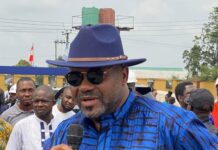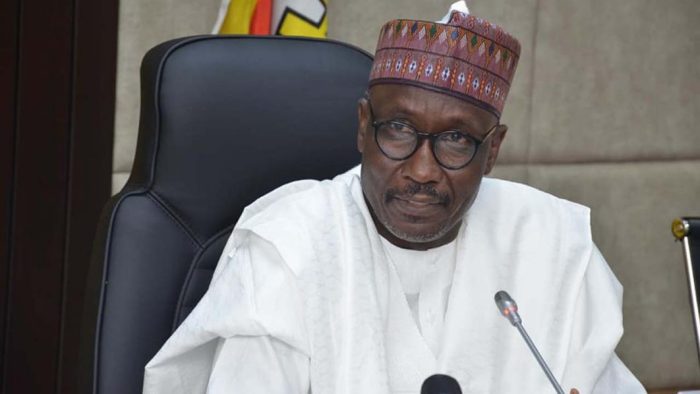Today, May 29, 2015, history is being made in Nigeria with the transfer of power at the federal level to an opposition candidate. The change of baton between outgoing President Goodluck Jonathan and incoming president, Muhammadu Buhari, is interesting in many respects, least of all that President Buhari, a former military Head of State, won the March 28 presidential poll on his fourth attempt. This election has come and gone and has been hailed for the remarkable conduct of both leading candidates, particularly Jonathan whose early concession enabled a seamless transfer of power, even if there have been complaints of friction between both parties in the run up to today’s inauguration event.
The particularly interesting point for me is that Buhari’s inauguration would represent the third time in the life of this nation since the return of democracy in 1999 when such transfer of power has come with great expectations. The first was in 1999 when Olusegun Obasanjo, a former military Head of State and late General Sani Abacha’s prisoner, was elected to lead, after years of military rule and acrimony. The second was in 2010 when Nigerians as one arose and demanded that then Vice President Jonathan be invested with power following the chicanery in Aso Rock, where a cabal of ministers and aides of then President Yar’Adua ran a regency of sorts with the president ill and indisposed. The denigration and humiliation of the then VP was condemned by one and all across the nation, and his humility and calm was, as is usual in these climes, divined as the rites of passage for a man who had been ordained to rule, in spite of his political inadequacies. The third is today’s inauguration of a man who had lived low-profile despite his access to power and had been canonized as the representation of the austerity that these times demand, being, as has been evident, popular with the common folk.
Buhari’s presidency comes with much expectation, especially against the backdrop of a prostrate national economy, promises made by his All Progressives Congress (APC) in the campaign for the election, and the need to infuse discipline in government. This is not to downplay the expectations of Nigerians baying for the blood of the regime’s predecessor, an emotive salve for a people pauperized not just by the mindboggling reports of corruption that, truth be told, predates Jonathan and has active cultures in the APC itself, but because of the satiating power of seeing yesterday’s oppressors in pain, however contrived and incommensurate. No such retribution can be more satisfying, at least until the promised judgments of the faiths when the oppressors shall be brought to account.
The new president surely has had, and will hear more than, an earful of to-do lists from Nigerians over the past two months since he won the election. He will have work to do on social and industrial infrastructure, corruption and the mores that have held us down, and laced through all these will be regional interests to consider and partisan interest to deal with. In all, President Buhari has his plate full.
Tangential to the main subject of this essay, two weeks ago I took a road trip from Lagos to Abuja and back. It is something I do regularly as a means of satisfying my curiousity about the rate of progress in Nigeria. In 2011, I undertook a similar trip just when the campaigns were underway for the 2011 general election, and I made one in 1998 while Abacha was still in power, apart from others throughout the country during the last 16 years. Over my last three trips to Abuja, on account of bad roads, the trips have progressively taken more time to complete. In the 1990s, a trip to Abuja from Lagos would take you about eight hours, going through Trunk A roads; the last two took me between 10 and 12 hours. The last one two weeks ago saw us passing through rural roads and villages in Ekiti and Kogi State, and the craters, potholes and accidents on the way were numbing enough I wondered why people in government must engineer lies and concoct stories of roads repaired and so on. It reminded me of a big billboard President Obasanjo had of himself straddling the median of the Lagos – Ibadan highway just before the Shagamu interchange proclaiming that the road was being fixed, thanks to the president! Yet for all of those years, not a trip of granite was visible along the pothole – ridden road; only a few months back was a serious effort being made to fix that road by the outgoing Jonathan government.
After those trips, it crossed my mind that our political leaders must be made to undertake such trips every now and then to appreciate what their subjects go through, instead of using choppers to fly above the evidences of their misrule.
The expectations from Buhari are massive and it is not difficult to see if you truly live as a Nigerian and not in some cultured environments where the vicissitudes of the Nigerian experience is tempered by acquired comforts facilitated by the national treasury, as most of our politicians are wont to. Buhari’s ability to handle the problems in a sustainable manner would depend on what he can take from Obasanjo’s time in office, because as he himself observed Change would take time and would come with sacrifices.
There is no doubt Obasanjo sees his government as the best thing that happened to this country; he is entitled his self-delusion. But the lessons Buhari should learn are of Obasanjo’s failure to engineer a new social conduct for public officers, and a credible succession plan.
To fix this country would take more than eight years of a Buhari presidency, if he decides to run for a second term, which is within his right; it would take a combination of short, medium and long-term plans addressing issues like infrastructure, which demand consistency and continuity. Obasanjo did us tremendous injustice when, rather than focus on building this country he embarked on a wild goose chase for successors and on a mission of self-veneration. Those two failures, selfish in themselves, are at the heart of our failure so far after 16 years of civilian rule.
Buhari should avoid self-veneration; he should learn from Obasanjo’s anti-corruption drive, which yielded only little, even after all the high-profile arrests the agencies made. Buhari needs to go across party aisle to call an all politicians conference and lay before them the dangers of the prevailing profligacies and demand better conduct. After the arrest of Bayelsa Governor DSP Alamieyeseigha in 2005 following the orchestration of Obasanjo, I had a discussion with a few friends where the summary was that Obasanjo would have made better progress if, given his access to information, he had sought to caution and mentor the political class on what it ought to do. As one analyst put it, if Obasanjo had called Alamieyeseigha, berated him and asked him to return the loot, he could have been more effective, instead of all the acrimony he generated amid his nauseatingly – shifting moral compass.
One other misstep he made, which inadvertently produced Yar’Adua and Jonathan, is the deliberate vilification of Vice President Abubakar Atiku. With the benefit of hindsight, an Atiku presidency after eight years of Obasanjo should have built on the foundations and ensured continuity, rather than the stop-go approaches that characterized government in the last 16 years. He did us tremendous disservice by not having a clear succession plan. I am not too sure Atiku would have been worse than the regimes Obasanjo foisted on us. The corruption stigma he orchestrated against his former deputy, which has been so overplayed, especially when that is no exclusive preserve of any politician in this country, was vindictive and devious.
Buhari would have to be careful of characters like Obasanjo and deliberately create a harmonious working arrangement with his deputy and other of his appointees, except where this is detrimental to the larger interest of the nation. The idea of the leviathan, which Obasanjo reveled in, has only produced disastrous consequences for the nation and for Obasanjo himself. Buhari does not need all those distractions.
It is interesting to see the triumph of the bi-partisan campaign that produced the victory of immediate past Agriculture minister Dr Akin Adesina yesterday as President of the African Development Bank, and pray that Buhari would stay the course of statesmanship, in the national interest.
Awowede is Editor and Publisher at Creektown Books.



